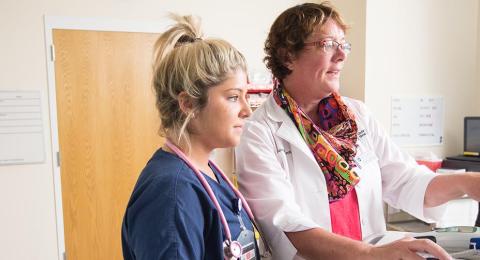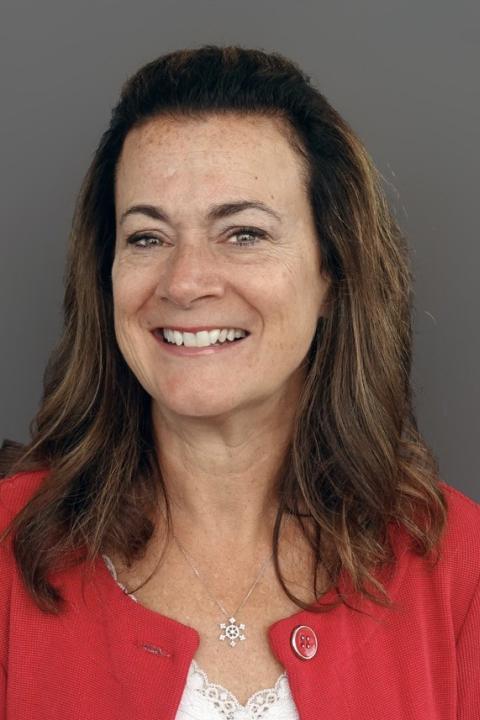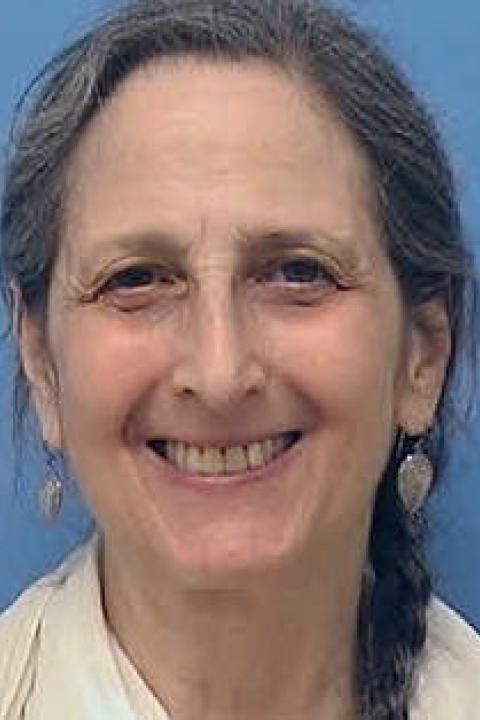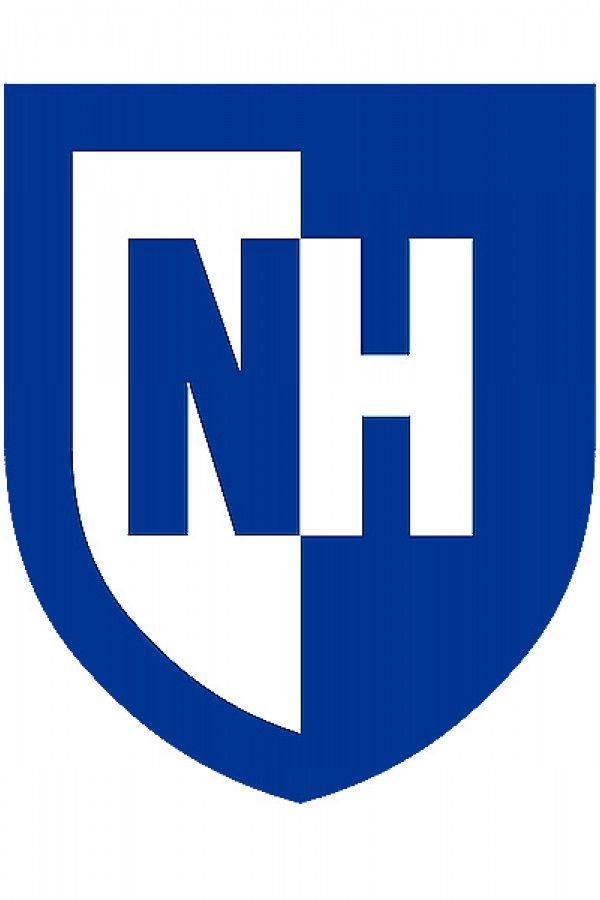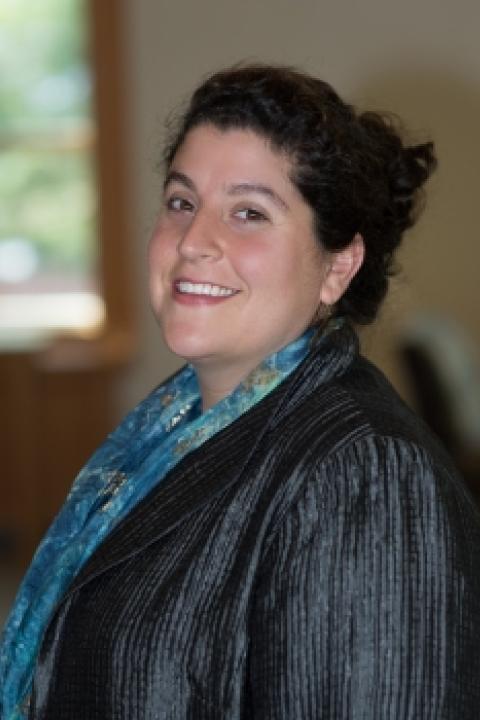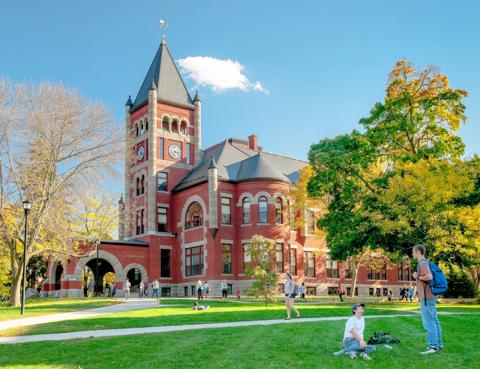Why get a Master's degree in Nursing: Clinical Nurse Leader?
A Clinical Nurse Leader (CNL) oversees the lateral integration of care for a distinct group of patients and may actively provide direct patient care in complex situations. A CNL puts evidence-based practice into action to ensure patients benefit from the latest innovations in care delivery; collects and evaluates patient outcomes; assesses cohort risk; and has the decision-making authority to change care plans when necessary. This clinician functions as part of an inter-professional team by communicating, planning and implementing care directly with other healthcare professionals, including physicians, pharmacists, social workers, clinical nurse specialists, nurse practitioners and other healthcare providers. A CNL is a leader in healthcare delivery across all settings. In the final semester of the program, students sit for the clinical nurse leader certification exam.
Why choose UNH's M.S. in Nursing: Clinical Nurse Leader program?
At UNH you’ll be supported by a productive faculty and outstanding facilities as you advance your nursing career. Faculty members conduct research in a wide variety of topics including substance use disorders and harm reduction, distance education, telemedicine, telepractice and health information technology, best practices for LGBTQ communities, family nursing, rural health and human dimensions of climate change. Clinical practicum sites are available in local, regional and teaching hospitals, clinics, community health agencies, primary care and other urban and rural healthcare settings in New England with additional sites by permission.
Potential Career Areas
- Community health agencies
- Education
- Government health services
- Home health agencies
- Hospitals and acute care settings
- Military
- Primary care clinics
Curriculum & Requirements
Students graduate as an advanced generalist Clinical Nurse Leader (CNL) with a master of science degree. Graduates are eligible to sit for the American Association of Colleges of Nursing (AACN) Clinical Nurse Leader national certification examination. The CNL is a role in the field of nursing designed to provide master's-prepared, point-of-care nurse leaders with the ability to manage and solve complex patient problems within a systems framework.
Admission Requirements
Registered nurses (RNs) who have successfully passed the NCLEX-RN, currently hold an unencumbered, active RN license in the United States, and who hold a baccalaureate degree in either nursing or another field can be considered for admission. Applicants are required to have a good academic record and completion of coursework in statistics and research. The following is required:
- Unencumbered, active RN license in the United States
- Baccalaureate degree in nursing or another field
- Cumulative GPA of 3.0 or higher in associate and baccalaureate programs
- Nursing experience is preferred but not required for Clinical Nurse Leader and Evidence-Based Practice tracks
- 3 letters of recommendation
Recommendation letters submitted by relatives or friends, as well as letters older than one year, will not be accepted. Professional references should be substantial, and one academic recommendation is recommended.
- Personal Statement. Prepare a brief but careful statement regarding:
- Reasons you wish to do graduate work in this field, including your immediate and long-range objectives.
- Your specific research or professional interest and experiences in this field.
RNs whose baccalaureate degree is in a field other than nursing may apply to the master of science degree in nursing (MS) program and will be considered for the track that is commensurate with their clinical experience based on faculty discretion.
Degree Requirements
Clinical Hours: 500*
| Code | Title | Credits |
|---|---|---|
| Required Courses | ||
| NURS 812 | Advanced Pharmacology and Therapeutics | 3 |
| NURS 814 | Advanced Health Assessment Across the Lifespan | 3 |
| NURS 816 | Health Promotion Theory and Population Health | 3 |
| NURS 818 | Foundations of Evidence Based Practice | 3 |
| NURS 820 | Advanced Physiology and Pathophysiology Across the Lifespan | 3 |
| NURS 917 | Biostats and Epidemiology | 3 |
| NURS 910 | Genomics & Ethics | 3 |
| NURS 926 | Clinical Nursing Leadership Scholarly Project I | 3 |
| NURS 927 | Clinical Nursing Leadership Scholarly Project II | 3 |
| NURS 928 | Clinical Nursing Leadership Scholarly Project III | 3 |
| NURS 943 | Fundamentals of Quality Improvement & Safety in Healthcare | 3 |
| NURS 969 | Health Systems Policy, Economics & Financial Planning | 3 |
| NURS 815 | Leadership, Role, and Collaboration | 3 |
| Total Credits | 39 | |
- *
Clinical hours are completed through the following required courses: NURS 926, NURS 927, NURS 928.
Accelerated Master's Overview
Accelerated Master’s programs offer qualified University of New Hampshire undergraduate students the opportunity to begin graduate coursework in select graduate programs while completing a bachelor’s degree. Accelerated master's programs are designed to provide students with an efficient and cost-effective pathway to earn both a bachelor's and master's degree or graduate certificate, enhancing career opportunities and long-term earning potential.
Accelerated Master's Highlights
- Begin studying advanced topics while an undergraduate student with the opportunity to complete a master’s degree or graduate certificate early.
- Master’s degree program students: Earn up to 12* graduate (800-level) course credits while completing a bachelor’s degree. This coursework will count as dual-credit toward both the bachelor’s and master’s degrees.
- Graduate certificate program students: Earn up to 8* graduate (800-level) course credits while completing a bachelor’s degree. This coursework will count as dual-credit toward both the bachelor’s degree and the graduate certificate.
- Students complete the bachelor’s degree, and then officially matriculate into the master’s or graduate certificate program to complete the remaining required graduate-level coursework.
*Some exceptions apply.
Accelerated Master's Admission Requirements
- A minimum 3.2 cumulative GPA is required.*
- A minimum of 90 undergraduate credits must be completed prior to enrolling in graduate (800-level) courses.
- Streamlined Graduate School Application (two letters of recommendation; most standardized tests and application fee are waived).*
*Some exceptions apply.
Accelerated Master's Requirements
- Students must attend a mandatory orientation session.
- Students must submit a special registration form each semester for dual-credit courses and note any DegreeWorks exceptions.
- Students may defer graduate matriculation for up to one year after earning their bachelor’s degree in most programs.
- See the Accelerated Master’s Catalog Policy and Accelerated Master’s Website for additional information and a list of programs. Note that some programs have additional requirements (e.g. higher-grade expectations) compared to the general policy.
Nursing: Clinical Nurse Leader (M.S.) Accelerated Option
This graduate degree program is approved to be taken on an accelerated basis in articulation with the following undergraduate program(s):
| Code | Title | Credits |
|---|---|---|
| Nursing (B.S.) | ||
| Students select from the following approved 800-level courses that can be completed in the undergraduate senior year for dual credit: | ||
| NURS 812 | Advanced Pharmacology and Therapeutics | 3 |
| NURS 814 | Advanced Health Assessment Across the Lifespan | 3 |
| NURS 816 | Health Promotion Theory and Population Health | 3 |
| NURS 818 | Foundations of Evidence Based Practice | 3 |
| NURS 820 | Advanced Physiology and Pathophysiology Across the Lifespan | 3 |
| NURS 815 | Leadership, Role, and Collaboration | 3 |
Program Learning Outcomes
The Masters of Science Clinical Nurse Leader program builds upon the skills of the baccalaureate prepared nurse.
At the completion of the Master's nursing program, the graduate student is prepared to:
- Integrate, translate, and apply knowledge from nursing and other disciplines, to formulate clinical judgment and innovation in nursing practice.
- Design person-centered care that builds on a scientific body of knowledge focusing on individuals with multiple complicated circumstances, including family and/or important others.
- Advocate for healthcare delivery from public health prevention to disease management through collaborative activities for equitable population health outcomes.
- Disseminate nursing knowledge to improve health care.
- Integrate established and emerging principles of safety as core nursing values to enhance quality and minimize harm to patients and providers.
- Lead collaborative care teams to optimize patient outcomes and improve health care experiences.
- Coordinate resources for diverse populations to provide safe, quality, and equitable care.
- Utilize informatics and communication technologies in developing and delivering optimal healthcare services according to best practice and professional and regulatory standards.
- Cultivate a sustainable professional nursing identity that reflects nursing’s characteristics and values.
- Utilizes leadership skills, change theories, and effective decision making in advanced nursing roles in the provision of care.
Professional Licensure/Certification Disclosures
This is a non-licensure degree program. No additional license is required to practice in this field.
Visit the Office of the Registrar's website for more information about university programs that lead to professional licensure or certification eligibility.
Deadlines
Applications must be completed by the following deadlines in order to be reviewed for admission:
- Fall: Recommended April 1, Final Deadline if space available August 1
- Spring: N/A
- Summer: N/A
- Special: N/A
Application fee: $65
Campus: Online
New England Regional: No
Accelerated Masters: Yes (for more details see the accelerated masters information page)
New Hampshire Residents
Students claiming in-state residency must also submit a Proof of Residence Form. This form is not required to complete your application, but you will need to submit it after you are offered admission, or you will not be able to register for classes.
Transcripts
If you attended UNH or Granite State College (GSC) after September 1, 1991, and have indicated so on your online application, we will retrieve your transcript internally; this includes UNH-Durham, UNH-Manchester, UNH Non-Degree work and GSC.
If you did not attend UNH, or attended prior to September 1, 1991, then you must upload a copy (PDF) of your transcript in the application form. International transcripts must be translated into English.
If admitted, you must then request an official transcript be sent directly to our office from the Registrar's Office of each college/university attended. We accept transcripts both electronically and in hard copy:
- Electronic Transcripts: Please have your institution send the transcript directly to grad.school@unh.edu. Please note that we can only accept copies sent directly from the institution.
- Paper Transcripts: Please send hard copies of transcripts to: UNH Graduate School, Thompson Hall- 105 Main Street, Durham, NH 03824. You may request transcripts be sent to us directly from the institution or you may send them yourself as long as they remain sealed in the original university envelope.
Transcripts from all previous post-secondary institutions must be submitted and applicants must disclose any previous academic or disciplinary sanctions that resulted in their temporary or permanent separation from a previous post-secondary institution. If it is found that previous academic or disciplinary separations were not disclosed, applicants may face denial and admitted students may face dismissal from their academic program.
Letters of recommendation: 3 required
Recommendation letters submitted by relatives or friends, as well as letters older than one year, will not be accepted.
References should be substantial with one academic, if available, and two current nursing professionals with graduate education background.
Personal Statement/Essay Questions
Prepare a brief but careful statement regarding:
- Reasons you wish to do graduate work in this field, including your immediate and long-range objectives.
- Your specific research or professional interest and experiences in this field.
Additional Department Requirements
Applicants are required to have an unencumbered RN license in the United States, degree in nursing or outside nursing, and successful completion of undergraduate statistics and research to be eligible to apply to this program.
Non-BSN Admission Requirements:
RNs whose baccalaureate degree is in a discipline other than nursing may apply to the master of science degree in nursing (M.S.) program and will be considered for the track that is commensurate with their clinical experience based on faculty discretion.
- Unencumbered, active RN license in the United States
- Baccalaureate degree in another field
- Cumulative GPA of 3.2 or higher in associate and baccalaureate programs
- Nursing experience preferred but not required
- Successful completion of undergraduate statistics course and undergraduate research course
- Interview may be requested
Important Notes
All applicants are encouraged to contact programs directly to discuss program-specific application questions.
International Applicants
Prospective international students are required to submit TOEFL, IELTS, or equivalent examination scores. English Language Exams may be waived if English is your first language. If you wish to request a waiver, then please visit our Test Scores webpage for more information.
